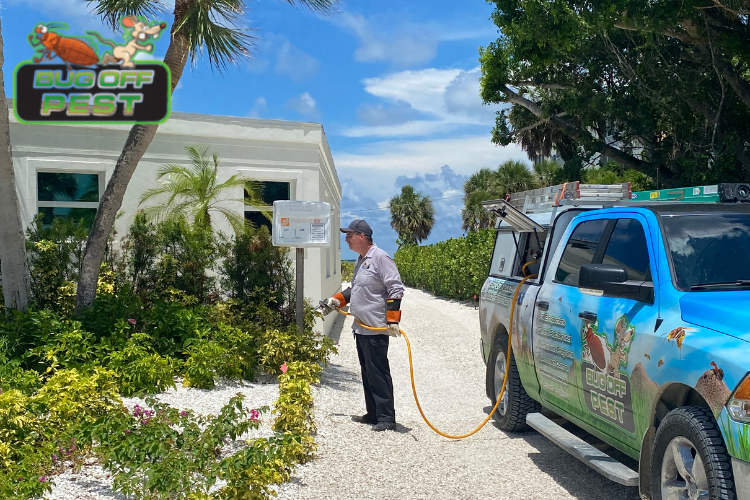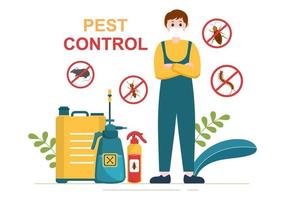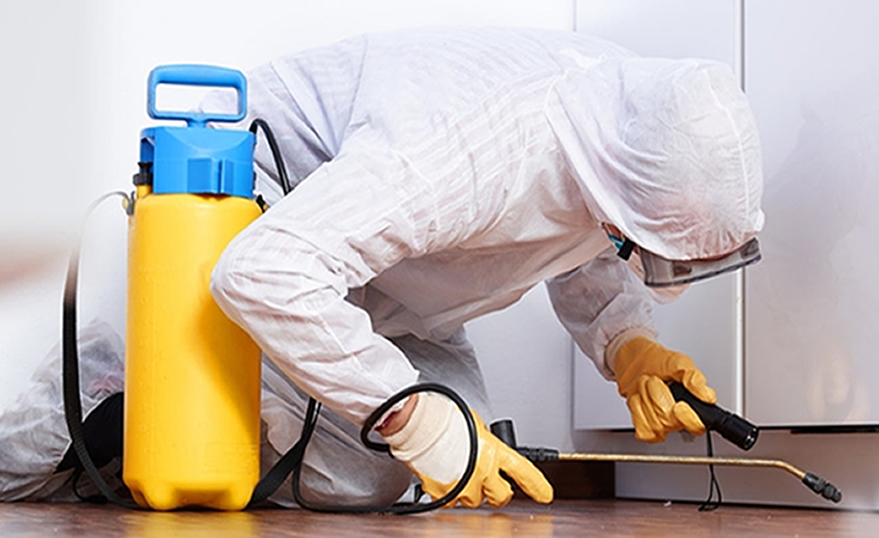Guaranteed Pest Control in Charlotte County FL
Guaranteed Pest Control in Charlotte County FL
Blog Article
Comprehensive Guide to Comprehending Insect Control Methods and Their Treatment
Comprehending parasite control techniques is necessary for reliable administration of undesirable microorganisms that present threats to health and wellness, farming, and residential property. This extensive guide will discover numerous approaches, including chemical services, organic methods, and mechanical approaches, all under the umbrella of Integrated Insect Monitoring (IPM) As we check out these approaches, it comes to be increasingly clear that the choice of strategy can considerably affect both human passions and eco-friendly equilibrium. What elements should be considered when selecting the appropriate pest control method for a specific scenario? The answer might lead to more lasting practices than one may initially think.
Overview of Insect Control Approaches
Insect control techniques encompass a variety of techniques created to take care of and remove unwanted organisms that can damage human health and wellness, agriculture, and residential or commercial property. Reliable bug monitoring is critical for maintaining the stability of communities and making sure the safety of food supplies. These approaches can be extensively categorized into three key techniques: cultural, mechanical, and organic controls.

Cultural control involves changing farming methods or ecological conditions to minimize parasite facility and recreation. Mechanical control depends on physical barriers or devices to avoid pest accessibility or straight remove them.
Organic control utilizes all-natural killers, bloodsuckers, or virus to manage pest populations. This method highlights ecological equilibrium and can include presenting valuable bugs, such as ladybugs or predative nematodes, to take care of bug presence.
Integrated parasite administration (IPM) combines these methods, using a holistic method that highlights avoidance, monitoring, and liable administration. By utilizing a mix of these techniques, parasite control can be a lot more sustainable and reliable, decreasing reliance on chemical treatments while securing human health and wellness and the setting.

Chemical Insect Control Solutions
A variety of chemical insect control remedies are readily available, giving efficient choices for taking care of insect populaces when other techniques might fall short. These remedies primarily include pesticides, herbicides, fungicides, and rodenticides, each developed to target particular bugs while minimizing injury to non-target organisms.
Pesticides are specifically efficient versus a series of pests, including ants, cockroaches, and termites, and can be categorized as contact or systemic representatives. Contact insecticides eliminate parasites on get in touch with, while systemic pesticides are taken in by plants, making them hazardous to bugs that feed on them. Herbicides are used to regulate undesirable vegetation, whereas fungicides are important for handling fungal conditions that can harm crops and decorative plants.
Rodenticides, designed for rodent control, are available in different solutions, including baits and tracking powders. It is vital to follow label directions diligently to guarantee safety and security and effectiveness. Furthermore, incorporated insect management (IPM) principles must be utilized, combining chemical solutions with cultural, mechanical, and organic methods for sustainable pest control. This holistic approach not only improves pest management performance yet likewise decreases potential environmental impacts connected with chemical usage.
Organic Parasite Control Methods
Biological pest control techniques offer an ecologically friendly alternative to chemical methods by using all-natural predators, bloodsuckers, or pathogens to handle bug populations. This strategy leverages the eco-friendly relationships in between organisms, advertising a balanced environment while reducing chemical deposit in the setting.
One of the most typical biological control techniques includes the introduction of all-natural opponents. Ladybugs are used to regulate aphid populations, while parasitical wasps can target caterpillars and other bugs. These all-natural killers properly reduce pest numbers without hurting valuable pests.
Additionally, microbial agents such as microorganisms, fungis, and viruses are utilized to contaminate and kill particular parasites. Bacillus thuringiensis (Bt), a naturally happening microorganism, is commonly utilized to control caterpillars and other larvae, showcasing the performance of microbial pest control.

Physical and Mechanical Methods
Frequently utilized in incorporated bug administration techniques, physical and mechanical methods serve as reliable devices for controlling pest populations without making use of chemicals. These strategies count on physical barriers, catches, and other mechanical devices to avoid or remove insects, making them eco-friendly options.
Physical techniques consist of the usage of barriers such as insect netting, screens, or row her response covers that physically obstruct parasites from accessing plants. This is especially beneficial in farming settings where plant security is important. In addition, habitat adjustment, such as eliminating debris and standing water, can decrease parasite breeding sites, thereby decreasing infestations.
Mechanical techniques encompass catches, which can be designed to catch specific bugs. Sticky catches and pheromone catches prevail examples that entice and keep insects, promoting tracking and control. Vacuuming is an additional mechanical approach, reliable for getting rid of parasites from indoor settings, especially in cases of problems.
Preventative Parasite Management Approaches
Effective preventative insect monitoring approaches are necessary for preserving healthy environments and reducing pest-related problems before they develop (Pest Control in Port Charlotte, FL). These methods concentrate on aggressive measures that decrease the chance of bug infestations by dealing with the origin

Another vital technique entails proper landscaping methods (Pest Control in Port Charlotte, FL). Keeping greenery trimmed and away from buildings can lower harborage areas for parasites. In a similar way, applying incorporated insect monitoring (IPM) techniques that include keeping an eye on parasite populations and using biological controls can foster a well balanced community that normally suppresses pest numbers.
Education and learning and training for team and locals on acknowledging early signs of insect activity are also key elements of an efficient preventative program. By promoting an atmosphere of understanding and watchfulness, companies and home owners can significantly improve their bug management initiatives and guard their rooms versus future problems.
Conclusion
Finally, efficient insect control calls for a diverse method that integrates chemical, organic, and mechanical methods. Using an Integrated Pest Management (IPM) structure permits for the lasting management of pests while decreasing environmental effect. Preventative methods better improve the effectiveness of these techniques, making sure lasting defense of health, agriculture, and home. Ultimately, a thorough understanding of these diverse insect control techniques is vital for accomplishing successful results in pest management initiatives.
Report this page